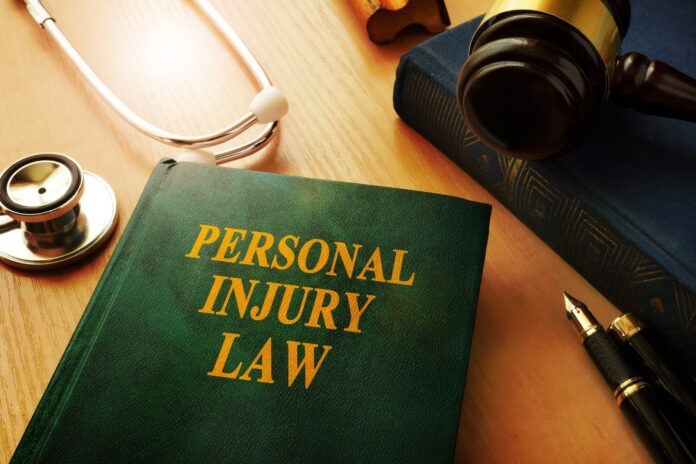Despite being relatively rare, serious personal injuries can happen unexpectedly anywhere. It is implausible that you or someone you know has been involved in an accident or similar situation. If such an event happens, there are many things to deal with, with the priority being to ensure that you or the affected person is in a stable health condition. Immediate recovery of the affected person is of utmost importance.
However, after recovery, you should seek help and compensation to get your life back on track, which calls for enlisting the services of personal injury lawyers. If you are facing this situation, this guide outlines important things you should know about personal injury cases.
What are personal injury claims?

As the name suggests, personal injury claims are physical or psychological injuries that occur due to accidents. In most situations, these injuries occur due to someone’s negligence. For personal injuries to be claimed, they should lead to financial hardship either through time-off at work or medical treatment. These claims are essentially compensation from the individual who caused the accident or insurer for the losses suffered.
Personal injuries vary, and most people often automatically link personal injury claims to car accidents (Click here for more on car accidents). While such accidents can lead to personal injury claims, personal injuries can be caused by many other factors. Among them include:
- Slip and fall accidents
- Pedestrian or bicycle accidents
- Drug-induced injury accidents
- Wrongful death incident
- Injuries at work
- Medical malpractice
To verify if an accident falls under a personal injury case, ask yourself if injuries resulting from the accident could be prevented if someone had followed safety guides or done their job correctly.
What is the personal injury claims process?

Like other cases, the personal injury claims process is quite challenging, especially if you aren’t familiar with court proceedings, and hiring a personal injury lawyer can be very beneficial. Personal injury attorneys understand the claims process and ensure that your case is thoroughly prepared, increasing the chances of success.
Note that compensations for most personal injury claims are paid by insurers, and insurers will try to find ways of minimizing the payment. Working with a good personal injury attorney gives you the upper hand and assures a better payout. The claims process involves the following four parts;
- Your attorney will assess your case to determine if your injury claim is valid. They will then identify the insurer and recommend the best way to proceed.
- The second step is preparing and submitting your injury claims to the insurer. The claims should include evidence and documentation to support the injury claim.
- Once submitted, the insurer will either accept or deny the claims. If they accept, they will offer to compensate for the injuries by making personal settlements. Your attorney will give you advice on a reasonable amount to accept.
- In some situations, you may fail to agree on the settlement amount, or the insurer may deny the injury claims. If such happens, you can take the case to court for litigation.
Do personal injury claims have time limits?

Like other litigations, personal injury claims fall under the statute of limitations. This means that injured individuals have a given period to forward their case for compensation. This time limit often begins immediately after the injured person discovers these injuries, since some injuries take weeks or months before showing up.
Time limitations vary based on the type of injury sustained and state regulations. Below are standard time limits for common personal injuries;
- Work compensation – Claims should be submitted within six months. However, it can be extended to three years or more depending on the circumstances and nature of the injury. For instance, injuries resulting in permanent impairment or death can be reported after three years.
- Car accidents – Affected persons have 28 days to launch claims for lost wages and other financial expenses. Most states allow up to three months, with some exceptions.
- Public injuries – Claims for public injuries should be made within three years after you become aware of the inju
- Medical negligence – Except for children and disabled people, claims for medical negligence should be made within three years.
However, regardless of the type of personal injury, some claims are exempted from the three year rule. For instance, claims involving people with mental disabilities and minors, can have an extended limitation period.
How long do personal injury cases take?

While the time taken to settle personal injury claims vary, most cases are resolved between nine and 18 months, with some taking longer. Factors that determine the time taken to settle the claim include:
- How long your injuries take to stabilize for them to be analyzed by medical experts
- If the insurer accepts the liabilities associated with personal injuries
- The time taken before the insurer and injured person reach a settlement agreement
- If you cannot agree on the settlement with the insurer sooner, the case may take more than 18 months.
What to do if your personal injury claims are denied

Unfortunately, some personal injury claims are denied. However, this shouldn’t mark the end of your claims, especially if your injuries are valid. You can appeal the insurer’s decision through several channels.
Insurers should provide a detailed explanation outlining why they rejected your claim. The first step is to ask the insurer to review their decision internally. If you believe the decision made by the insurer is wrong, instruct your attorney to file a written submission highlighting why the decision isn’t accurate and request a review.
In the event you can’t solve this dispute, you can escalate the issue to government agencies that regulate insurance schemes, such as the State Insurance Regulatory Authority (SIRA). These institutions will investigate the matter and make a justified ruling.
Conclusion
Like other legal issues, personal injury cases are complicated. You should understand some basic details about your personal injury case before filing for compensation. For better chances of success, working with a personal injury attorney is highly recommended.









